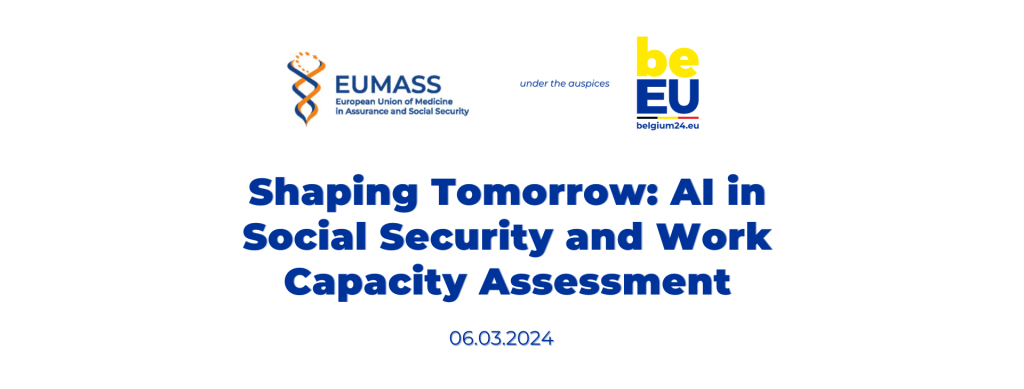EUMASS AI SYMPOSIUM – SURVEY

This report presents the current landscape of AI in social security and work capacity assessment. It is based on the survey conducted among stakeholders involved in the field to assess their perceptions, concerns, and experiences regarding AI applications. This report describes the results of the survey and translates them into recommendations for the reliable and effective implementation of the technology in the sector.
The survey revealed a strongly positive approach among respondents regarding the potential of AI in social security. However, despite the optimism, there are remaining concerns of participants regarding AI nature, capabilities, and associated risks. They emphasise the importance of rigorous verification processes—both internal and external—during the whole life cycle of AI applications in social security settings. In addition, participants indicated a clear preference for being sufficiently informed regarding employed AI applications. Finally, responders demonstrate their strong demand and willingness to be supported by and cooperate with AI developers.
This report underscores the need for a balanced approach, emphasising the potential benefits of AI while addressing concerns and advocating for transparent, ethical, and collaborative practices in the integration of technology within social security systems. Based on the described findings, key recommendations emerge:
- Raising Awareness: it is imperative to support and facilitate initiatives aimed at educating stakeholders, including users, policymakers, and professionals, about AI capabilities, limitations, and implications within social security. This awareness-building process is essential to mitigate misconceptions and enhance informed decision-making.
- Rigorous Safety and Quality Control: A robust framework for safety and quality control must be clearly defined and rigorously implemented. This framework should ensure thorough verification processes before deploying AI solutions in social security contexts, ensuring reliability and minimising risks to individuals.
- Transparency: Transparency stands as a key factor in gaining user acceptance and fostering trust. Therefore, efforts to promote transparency in AI applications—ensuring users are well-informed about the technology’s functionalities and implications—are essential.
- Cooperative Implementation: Reliable implementation of AI in social security necessitates collaborative efforts between users, deployers, developers, regulators, political decision-makers and affected individuals.
